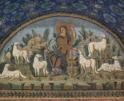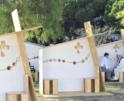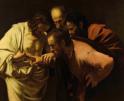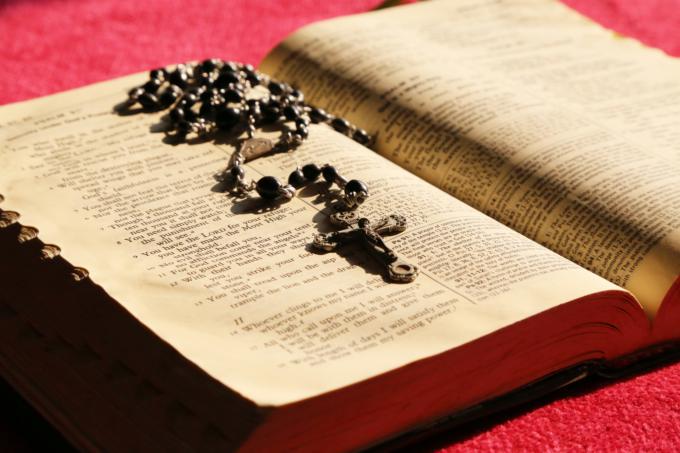
Faith

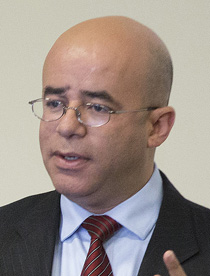
Ospino
The appointment of Hispanic bishops as ordinaries of dioceses in California, Texas or Florida is rather common. This is not surprising since most Catholics in the South and the West are Hispanic.
However, the recent appointment of Bishop Nelson J. Perez as the next bishop of Cleveland is not business as usual. It is a historical milestone for U.S. Catholics. Many reports have noted that Bishop Perez is the first Hispanic bishop of Cleveland. More interesting is that he is the first Hispanic bishop to head a diocese in the entire Midwest.
The Midwest and the Northeast remain as the standard hubs of Euro-American Catholicism. These are the regions where most Catholics from Europe settled during the 19th and early 20th centuries. In recent decades, Catholicism in the Midwest has experienced significant demographic, racial/ethnic and cultural transformations. These transformations have brought renewed attention to the rich diversity that has long existed among Midwestern Catholics. Some of those changes are small. Others are more significant, but they are often treated as marginal compared against predominant cultural expressions of Catholic life. In any case, change is happening steadily and it will continue to transform Catholic life in the region.
Bishop Perez assumes leadership of a Catholic body that is largely white, Euro-American, with about 10.7 percent Hispanic, 2.3 percent black, and 1.6 percent Asian and Pacific Islander, among other groups from different cultural families. Everything seems to indicate that such diversity will continue to expand. The closer one gets to larger cities in the region like Detroit, Indianapolis or Chicago, the more culturally diverse the picture becomes.
Bishop Perez without a doubt will bring attention to the fast-growing Hispanic presence in his new diocese as well as in the region. The Cuban-American, born in Miami, is perfectly bilingual and bicultural. He is also uniquely positioned to relate to many other Catholics in light of his personal and pastoral experience. A child of Cuban immigrants, his story intersects with that of many immigrants, exiles and refugees. His Afro-Caribbean roots bring him closer to the journey of African-American and other black Catholics.
As an American Catholic, Bishop Perez journeys culturally and religiously with his Catholic sisters and brothers at a moment when we continue to discern cultural diversity as a blessing. As a pastor, he has the responsibility to accompany all Catholics under his care. A pastoral leader indeed does not need to be Irish to serve Irish Catholics or Hispanic to serve Hispanic Catholics or Vietnamese to serve Vietnamese Catholics. The key is to become familiar as much as possible with the spiritual, ecclesial and cultural realities of the communities one serves.
Bishop Perez and countless other Hispanic pastoral leaders are increasingly prepared and ready to serve the entire Catholic community in our country. One could not expect less. We need to cultivate more of these leaders. Knowing this challenges the unrealistic assumption that Hispanic pastoral leaders are to serve primarily Hispanic Catholics. I do not think that I ever met anyone who would expect that a bishop with a non-Hispanic surname should choose to serve primarily non-Hispanics. Such willful neglect would be sinful.
Bishop Perez is the first Hispanic bishop heading a diocese in the Midwest. The first of many, for sure. This is good news for our church.
When Boston awaited the appointment of a new archbishop in 2003, I told an Irish-American priest friend that I would love to see a Hispanic leading the archdiocese. He said, "Boston Catholicism is very Irish, I don't think I will see a Hispanic leading this diocese in my lifetime." To that, I responded, "Why not!"
- Hosffman Ospino is assistant professor of theology and religious education at Boston College's School of Theology and Ministry.
Recent articles in the Faith & Family section
-
Scripture Reflection for April 21, 2024, Fourth Sunday of EasterJem Sullivan
-
The new Temple: How Easter changes religionDr. R. Jared Staudt
-
The wonder of Ordinary TimeLucia A. Silecchia
-
Is there still responsibility for past sins after confession?Jenna Marie Cooper
-
Wounds, not scarsJaymie Stuart Wolfe

